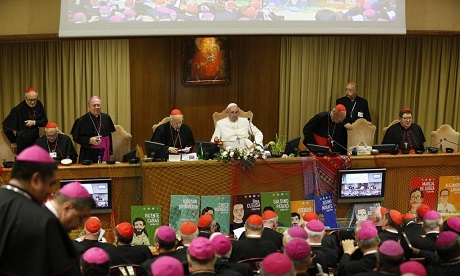Three issues coming out of the Amazon synod’s final document include ordaining married men to the priesthood, the female diaconate and creating an Amazonian Rite.
Two-thirds of the 180 bishops at the synod approved all the 140-paragraph document’s findings, which they voted on paragraph by paragraph.
One of the document’s main focuses further including laity and women in the Church’s ministry in the Amazon region.
The most contested sections of the document concerned the:
- Roles of the female diaconate (30 votes against)
- Viri probati — a discussion of ordaining married “men of proven virtue” to the priesthood — (41 votes against)
- Creating an Amazonian rite (29 votes against).
The bishops said they wished to “share their experience and reflections” with the Commission for the Study of the Female Diaconate that Francis created in 2016.
That study was tasked with providing further study and historical context for the role of women in the early church.
Although the final document does not have any real decision-making power, Pope Francis will consider all the bishops’ recommendations
Francis says after considering the document, he will prepare and release an apostolic exhortation on the Amazon.
Although Francis praised the spirit of the discussions among the bishops, he says the final document falls short on recognizing the role of women in the church.
“We haven’t yet comprehended what women mean for the church and we stay in the functional side” he said.
He also pointed out “the role of women in the church goes much further than functionality.”
Francis said he interprets the document as calling for the creation of a second commission to look into the historic role and diaconate of women in the church.
Although the first commission did not reach a comprehensive conclusion, Francis said he will submit it to a new commission.
With the help of the Vatican’s Congregation for the Doctrine of the Church, the commission will ensure women seeking further inclusion will “be heard.”
The lack of priests to minister to the numerous indigenous peoples in the Amazon region, is one of the main problems bishops grappled with at the synod.
If women deacons were permitted, they would be able to preach, distribute the Eucharist and officiate at weddings, baptisms and funerals. Deacons may not hear confessions or consecrate the Eucharist.
Another way to address the shortage of priests, amid growing competition from Pentecostal denominations, will be to encourage the ordination of tested married men to the priesthood, the final synod document says.
While they acknowledged “celibacy as a gift of God,” they also said “the legitimate diversity does not harm the communion and unity of the Church, but expresses and serves it.”
They also note that creating an “Amazonian rite,” through a liturgy that would better reflect the Amazonian region is not unprecedented.
The Church already recognizes over two dozen liturgical rites, which usually have their own bishops and specific liturgies.
Source
